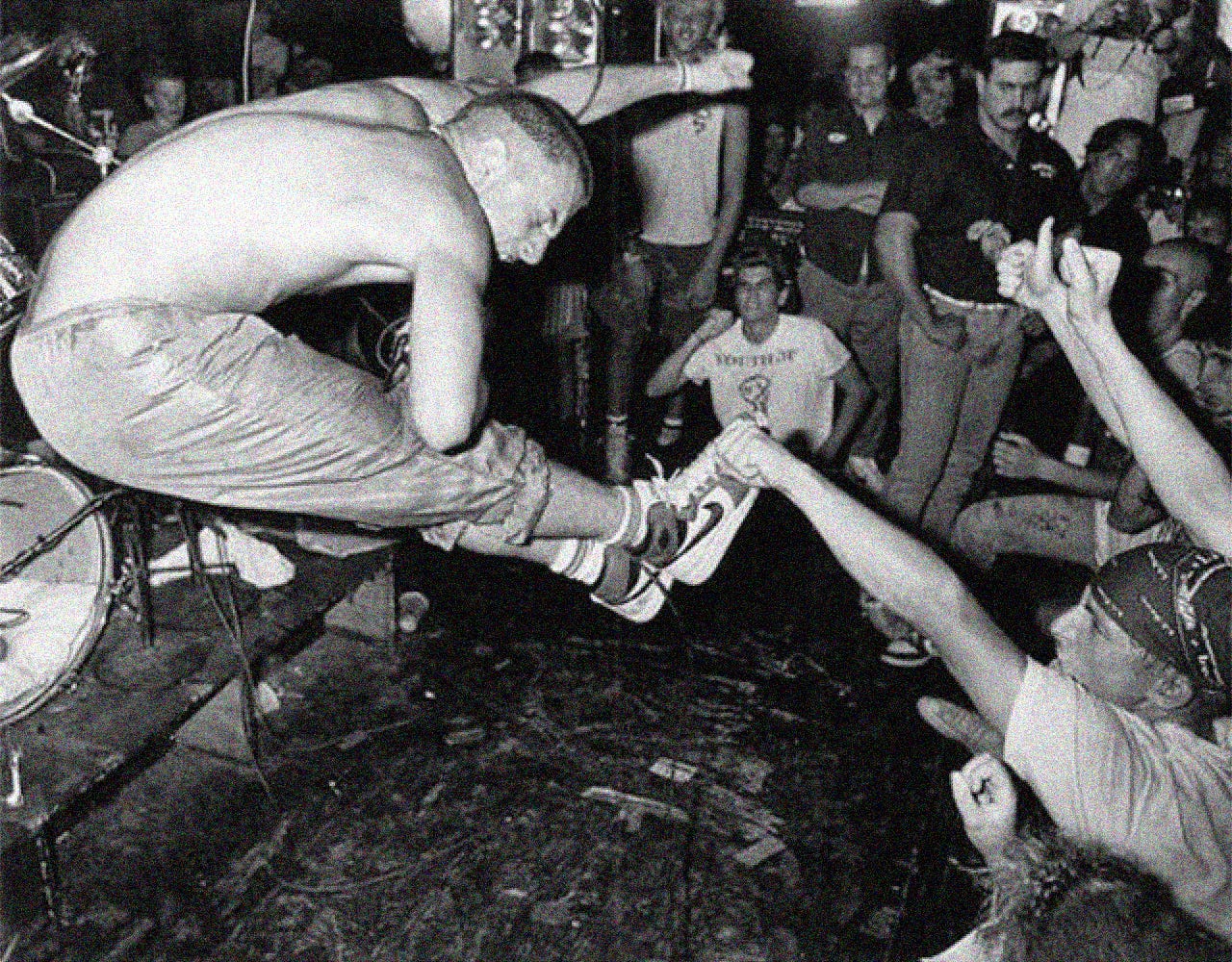

To mark the release of the Air Jordan 1 KO "Chicago" (AJKO) we spoke with Ray Cappo, lead singer of seminal hardcore band Youth Of Today, about the early days of the straight edge scene, the foundation of sportswear and sneakers in hardcore and the youth crew movement it still inspires to this day.
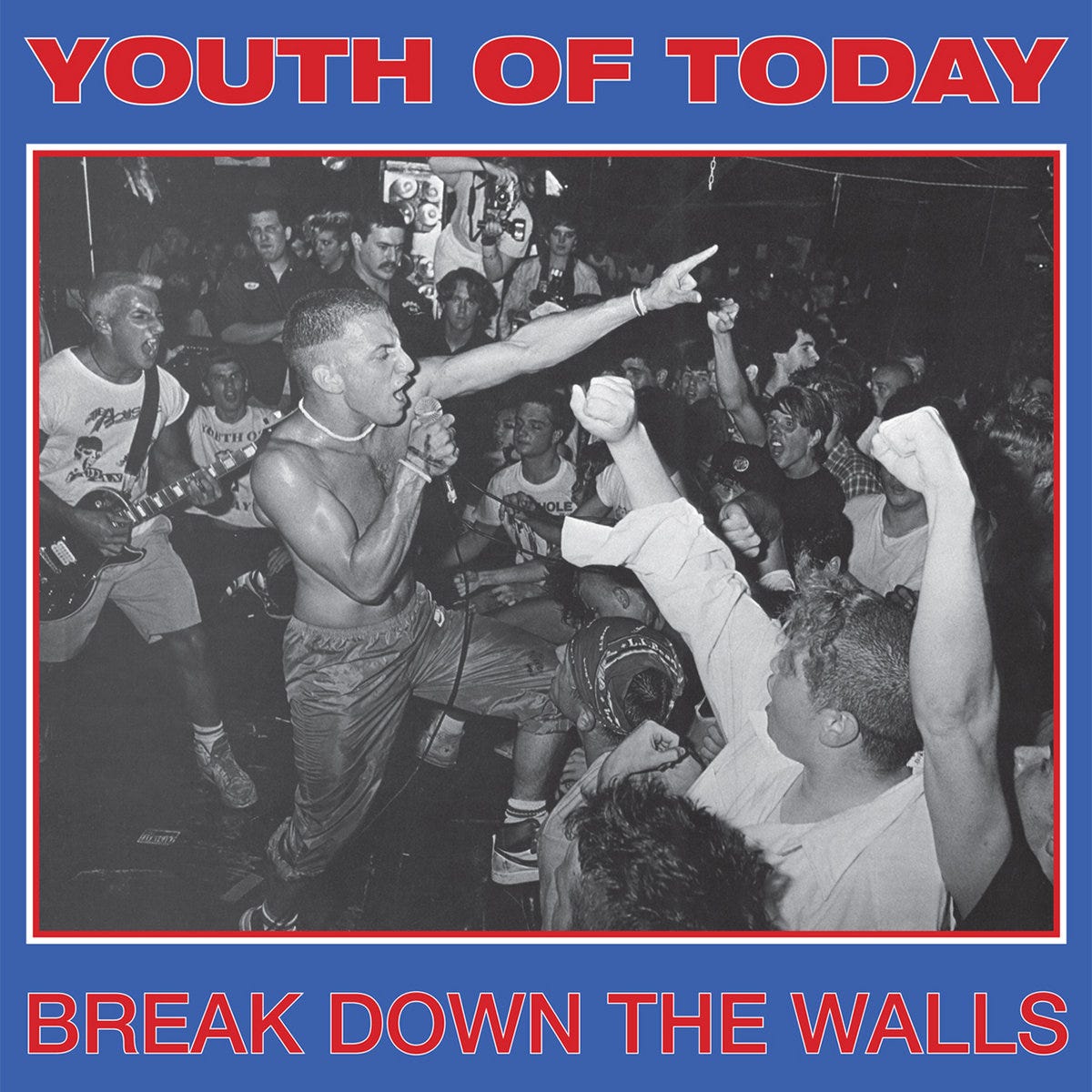

The youth crew look can be essentially traced back to the Youth of Today's iconic 1986 album cover Break Down the Walls. The photo cover (shot by Christine Carilli) of lead singer Ray Cappo in Nike trackpants and Jordan AJKO’s defined the style and aesthetic of the emerging scene.
We wanted to tell this story of the AJKO and how it came to encapsulate a moment and era still relevant today.
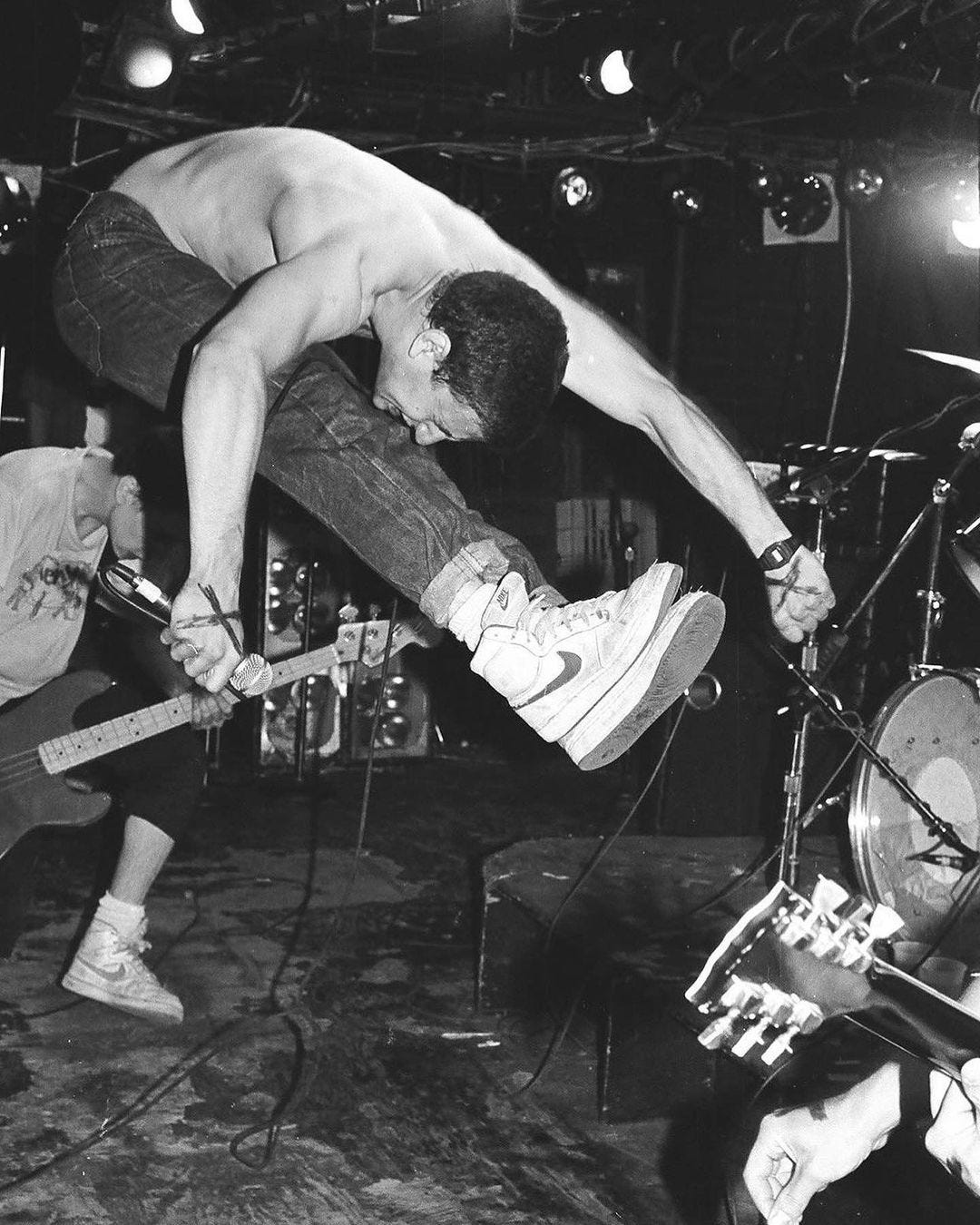

Supply: Here you have the Air Jordan brand sneaker, which is obviously one of the most recognizable things in the whole world and there's one sneaker that they made early on, and you happen to be the icon for it somehow.
Ray: That I got at Marshalls because it was on sale.
Supply: Yeah. So would you, knowing the gravity of all of that, start with how you got that sneaker? What's the story? Even if it's not much of a story. Why did you get them?
Ray: Well, I would "like" to say, I was a huge Michael Jordan fan and it meant everything to me and really wanted grab his shoes but the God honest truth is I couldn't give a crap about fashion, we just had our own fashion. You've got to understand what we were doing was so anti-fashion. We were punk rockers from the Hardcore scene and the fashion of the day was big leather knee-high boots with zippers from the ankle to the calf, occasionally a chain with a padlock belt and torn up net shirts. I remember Porcell and I saying "Why are we playing this costume party? We're not like this. We like sports, we like athleticism, good health and things like that. I'm sick of spiking up my hair."
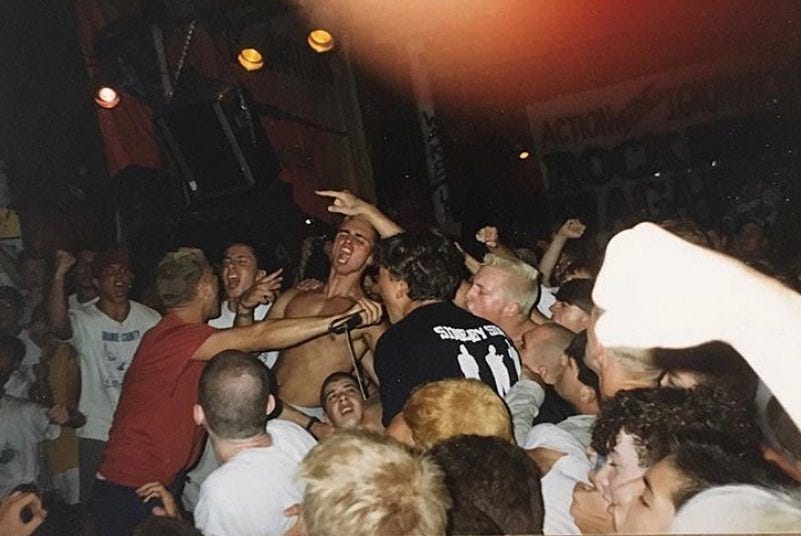

We we're more connected with California skaters, surf culture and stuff like that which was a unique thing in the New York Hardcore scene. We became against punk rock fashion, it was like we tried to be the punk of the punks. One of my learned traits from my mother, because she grew up in the depression, was to be a cheapskate. We had a family of seven and went to Salvation Army for clothing. Some of my oldest memories were at the Salvation Army. By the time I hit eighth grade all the cool kids were going to Salvation Army to get cool trench coats, baggy pants and weird punky-looking things. I would go there with my friends because we didn't want to go to the Gap, We wanted to get cool, weird vintage stuff. We would go in there and the staff would say "Ray, hey, hi, how are you?" And all my friends were like "How do you know these old ladies that work at Salvation Army?" I said "Are you kidding? I've been going here since I was five." Even the iconic Nike track pants I'm wearing on the cover of Break Down the Walls were from Salvation Army and the Air Jordans, I got them on discount at Marshalls. That's why I got them, Because I was a cheapskate like my mom. I liked them because they were red, white and black, they sort of had that athletic feel to them and they were canvas, which I dug because I was a vegetarian so it worked out perfect. I didn't realize that was going to be an iconic look, it was just like business as usual. I usually never had that haircut either, My roadie Russell was a barber so he said "Here, I'll cut something for you." I'd never had that haircut before in my life but it became iconic.
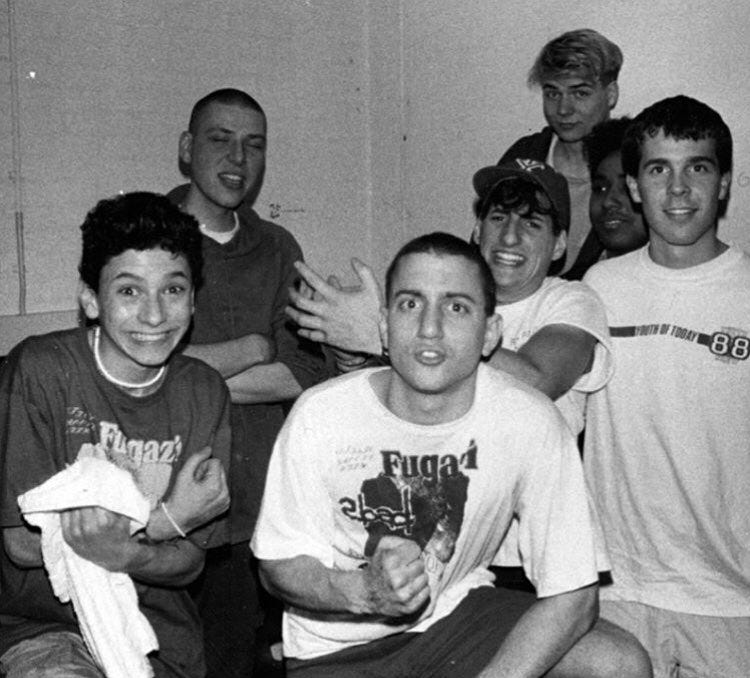

Supply: You said that you felt more in line with the skate culture and kind of California-ness, how did that come about?
Ray: It somehow came about because where we lived, there was no skate culture at all. To get a pair of Vans, you had to special order them from California and we became fascinated with California skate and surf culture. There was no Internet, so things just didn't get around. One of my high school buddies turned me on to Thrasher Magazine and we started getting into skateboarding which had a very small existence in 1982 where we lived in Connecticut. After the 70's Skateboarding disappeared from most of America except for California and weird little surfy-ish places but it was ridiculous anywhere else. If you were into skateboarding in high school in 1982 You were a loser but it was sort of extreme, weird and a form of street culture and we got into that. I think we actually thrived on being the outcasts, we liked it. We accepted it as our identity because we didn't want dress like everybody, be like everybody and think like everybody so we bought all our unique clothes at Salvation Army for the most part. We were doing our own thing and found our own niche. We just did it because that was our thing but Youth of Today ended up creating an international scene within a scene from it.


Supply: How did you notice that people were picking up on not just your music, but the way that you dressed as being a component of it? You had just decided to dress this way through Salvation Army, through cheapness, through an admiration of California. When did you realise that you were impacting people on a fashion basis? What did you make of that?
Ray: It almost seems that we were branding professionals, working for a big company or something like that but we had no clue what it was. We like this font, We dress like this, We use song titles that sound like this. We were branders and marketers and we didn't even realize it. You know how some people are just doing something, these guys are hanging out and all of a sudden they're doing some dancing on the street. Next thing you know, they've created hip hop breakdancing culture, that wasn't a plan. We branded a whole look with a font and a collegiate persona without planning then started realising people in Iowa and Texas were also dressing like us. Then we started to realize they're copying these records that we've created and they're creating their own bands with similar names and similar outfits and the pictures are sort of similar to our pictures. You realise it's becoming rubber-stamped without you even knowing it. Some people even naming their bands after a song title or lyrics from your songs. It starts to spread like that, we noticed it almost immediately when the records started coming out.
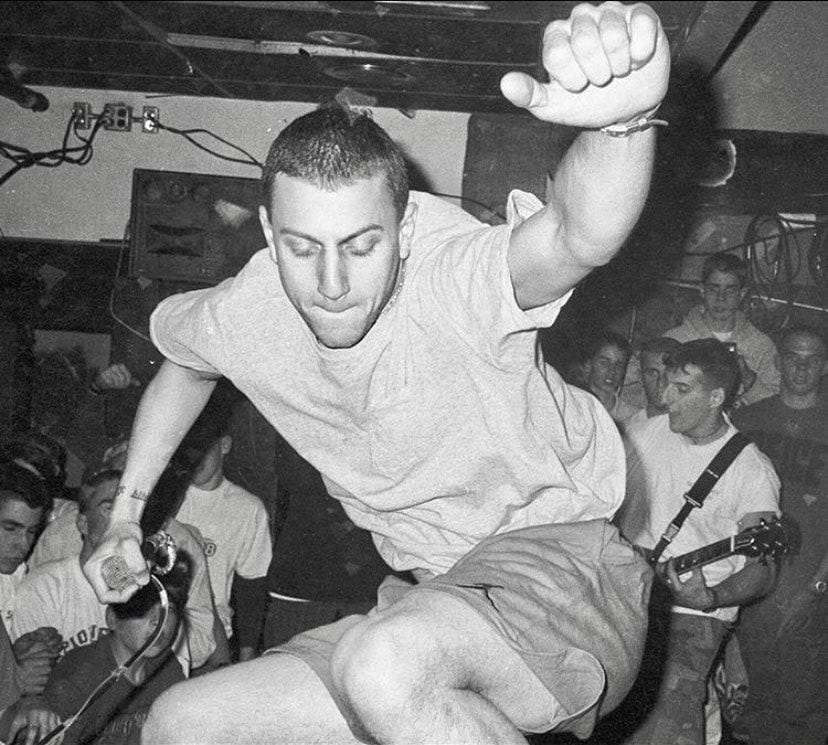

Supply: Yes. If you put it in this kind of brand way, it was franchising itself out kind of virally.
Ray: [Laughing] Yeah, we should have got a franchising fee. You want to do your band? Okay, we're charging money for franchises here. You can use a title of our song and words from our songs to buy into the franchise. Here's the outfit you can choose from. Here's the catalog you can order from. We got varsity jackets, We've got peg leg pants, low and high top Nike's and baseball hats. You just go to the website and that would be good, wouldn't it? We dropped the ball on that. We dropped change.
Supply: Right. A level membership, you get a pair of AJKOs. We include those. Can you tell me a single factoid about Michael Jordan? Do you know a single thing about him?
Ray: I don't. This is going to sound horrible. I don't know anything about Michael Jordan. I don't know anything about basketball. Even the big names I don't know.
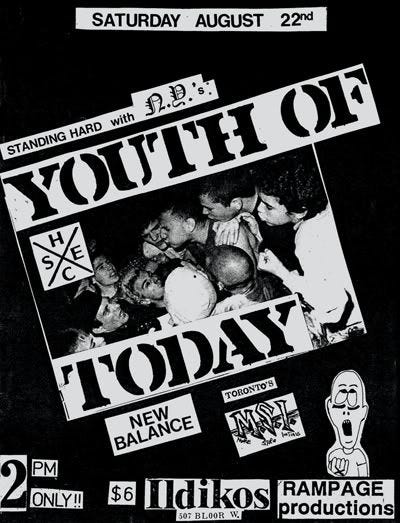

Supply: What's your take on how this kind of small movement, Hardcore, reverberates through the culture these days if you noticed that? Why do you think that that is?
Ray: I'm not sure why this particular scene still echoes 35 years later in this cult culture. It's not mainstream but there's old men who are into this and there's young people that are also into this as well. I think it speaks to a type of brash rebellion from the mainstream. We don't drink or party and that might sound like you are Mr. Conservative but it was brash and bold for a bunch of teenagers to say that, and it had a good look. It had a twist of integrity at a young age. There's that adolescence time when you're trying to find what is my path? So people got very loyal to what we were doing back then because it helped steer them right. Some people were in recovery groups and Straight Edge came along and saved their life from a tangent. Literally saved their life, not just figuratively. That changed people's life forever because that put them on a trajectory of clean living. You get either new people who are trying to find direction and say, "Hey, this is a great alternative than the rave scene." or you have people in their 30s or 40s being like "Thank God I cleaned up my act when I was 20 because now, this is how I want to raise my children. These are the guardrails I want to have in my own life as an adult." What we are talking about at 17 makes a lot of sense once you have kids and you want a functional relationship, and you're trying to live some type of higher consciousness life.
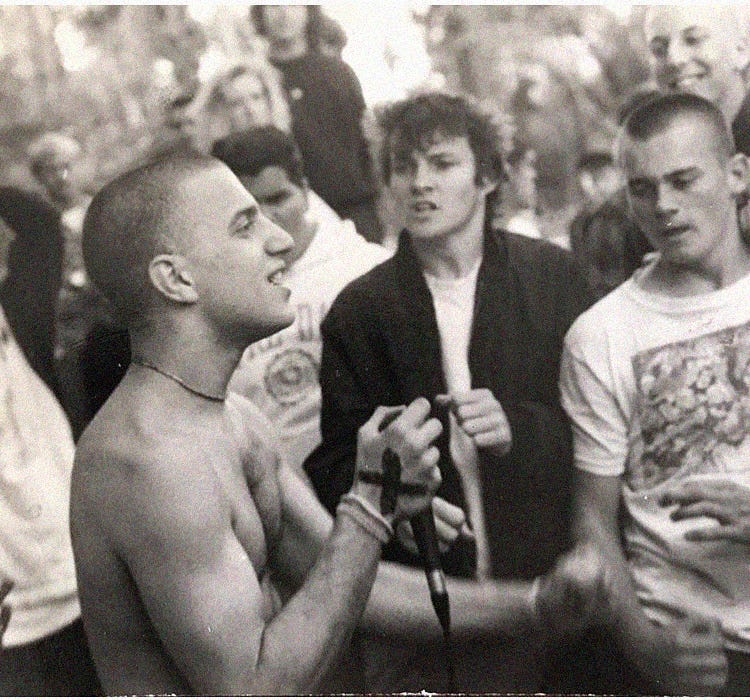

Supply: I love that. Thanks a lot. Be good, Ray. Take care.
Ray: Thanks. All right, man. Good hook-up.
Interview by our Friend, Dan Fiore
Back to blog